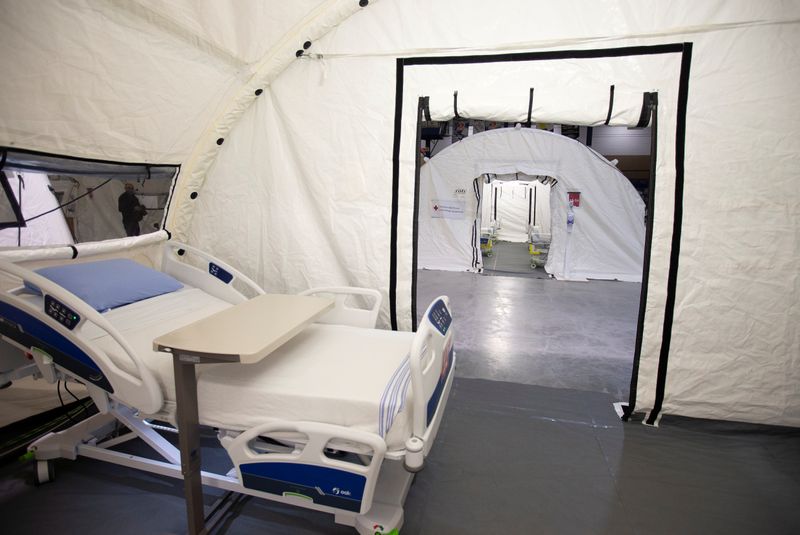By Allison Martell and David Ljunggren
TORONTO/OTTAWA (Reuters) - The government of Ontario, Canada's most-populous province and industrial powerhouse, said on Monday it would not begin lifting restrictions to fight the coronavirus for weeks to come despite pressure from businesses to restart the economy.
Premier Doug Ford said he could not provide a timetable for allowing people in non-essential businesses back to work until the numbers of new cases began dropping steadily.
"I won't set hard dates until we're ready, because the virus travels at its own speed," he told a briefing.
About 14.6 million people live in Ontario, representing 39% of the country's population. Together with neighboring Quebec, it accounts for 82% of the 47,327 positive diagnoses.
Canada's death toll grew by less than 10% for the eighth day in a row, hitting 2,617, official data showed.
All 10 provinces have declared health emergencies, shutting down firms across the country and throwing millions out of work.
Ford said he had been grilled by business owners about when they could open again.
"I understand the pain a lot of companies and people are going through and the pressure," he said, adding later that "we aren't going to be rushed into anything."
Ontario plans to reopen in three stages, each of which first requires a consistent two-to-four week decrease in the number of new cases.
Canadian Prime Minister Justin Trudeau told reporters the provinces were coordinating with Ottawa on how to reopen the economy and stressed the need for extreme caution, given how little that experts know about the coronavirus.
"I have confidence every province is taking very seriously this responsibility to be careful because nobody wants to have gone through all this for nothing," he said.
In Quebec, elementary schools and childcare services outside Montreal - the country's second-largest city - will reopen on May 11. In the Montreal region, elementary schools will reopen on May 19.
School attendance remains voluntary for students, Premier Francois Legault told reporters, adding that high schools, colleges and universities would remain closed.
The increase in deaths on Monday was the lowest day-on-day rise seen since the toll jumped by 12% on April 19.

"Although we are getting closer all of the time, we can't let go of the wheel yet," Canada's chief public health officer, Theresa Tam, told a briefing.